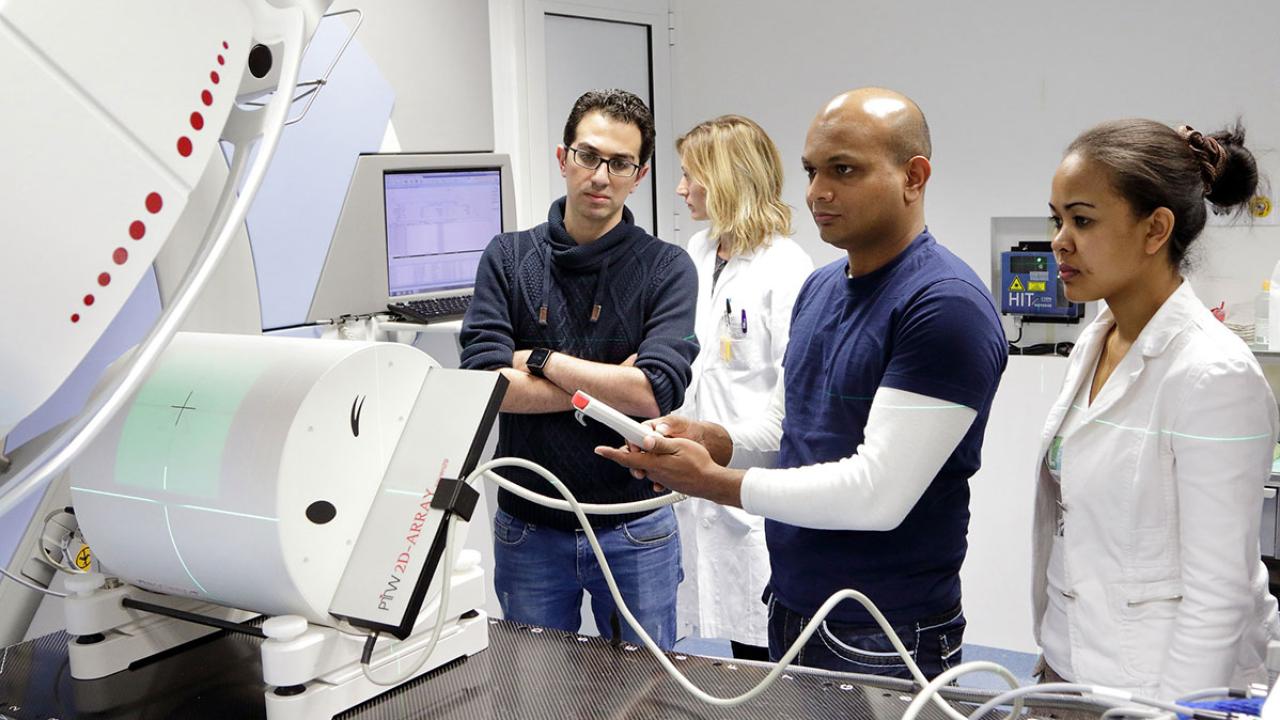
The galloping development of artificial intelligence (AI)-based technologies in the past few years has been paralleled by a growing interest in their applications in healthcare. Hopes are high about the potential of these new tools to become valuable assets for the medical profession, assisting experts at different stages of the clinical process. AI-based software could be used to improve current procedures, automate repetitive steps inherent to a clinician’s work, as well as inform treatment planning and decision making.
Clinical AI tools are "trained" to identify and characterise diseases via large data sets, enabling them to assess risk and predict treatment response. The validity and applicability of this outcome relies heavily on the quality and the characteristics of the initial data. The end result could be a tool that can transform the way medical physicists do their jobs and improve the treatment of patients.
Yet, there have been very few implementations of AI tools in clinical work, mainly due to the risks related to their inappropriate implementation, which could constitute a real hazard for patients. It has therefore become urgent to train a new generation of medical professionals to use, monitor and critically assess AI-based tools as they are introduced in healthcare [1].
To that end, ICTP and its UN partner the International Atomic Energy Agency (IAEA) ran a Workshop on Artificial Intelligence in Ionizing Radiation for Medical Physicists from 20 to 24 November at ICTP. The workshop aimed to provide medical physicists with the theoretical and practical knowledge required to understand the working principles of AI and start applying AI-based tools in their practice.
“As the output of AI-based models strongly depends on the data used in their training phase, a basic understanding of statistics and of machine learning algorithms is essential to help medical physicists develop a critical perspective on the contribution that these new tools can provide,” explained Renato Padovani, Director of the ICTP’s Master in Medical Physics program, who is among the organisers of this workshop. “Our ability to avoid the risks related to an inappropriate use of AI tools heavily relies on a new generation of experts in the medical profession who understand how these technologies handle information, and who are able to discern and evaluate their output as more AI tools are integrated in medical practice,” he added.
Both ICTP and the IAEA bring years of expertise in the field to the workshop. The two organizations organise regular workshops and introductory courses in medical physics, targeting practitioners willing to learn new skills and keep at pace with a fast-developing field. The Centre also coordinates, together with the IAEA, a Master in Medical Physics programme. These efforts reflect the IAEA's mission to promote the safe, secure and peaceful use of nuclear technologies.
The workshop featured speakers from ICTP, the IAEA, as well as from other international research centres, who delivered foundational courses on advanced statistical methods, data management, and machine learning. Hands-on sessions were designed to teach students how to apply these concepts through simple programming exercises. A few sessions were dedicated to regulatory and ethical considerations related to the application of AI to radiation medicine.
More than 70 people registered for this workshop, with almost 70% of them coming from developing countries. The lectures were recorded and will be made public through the IAEA online learning platform, thus becoming available to a much larger audience and participating in medical physics and AI capacity building across the world.
[1] INTERNATIONAL ATOMIC ENERGY AGENCY, Artificial Intelligence in Medical Physics, Training Course Series No. 83, IAEA, Vienna (2023).
















